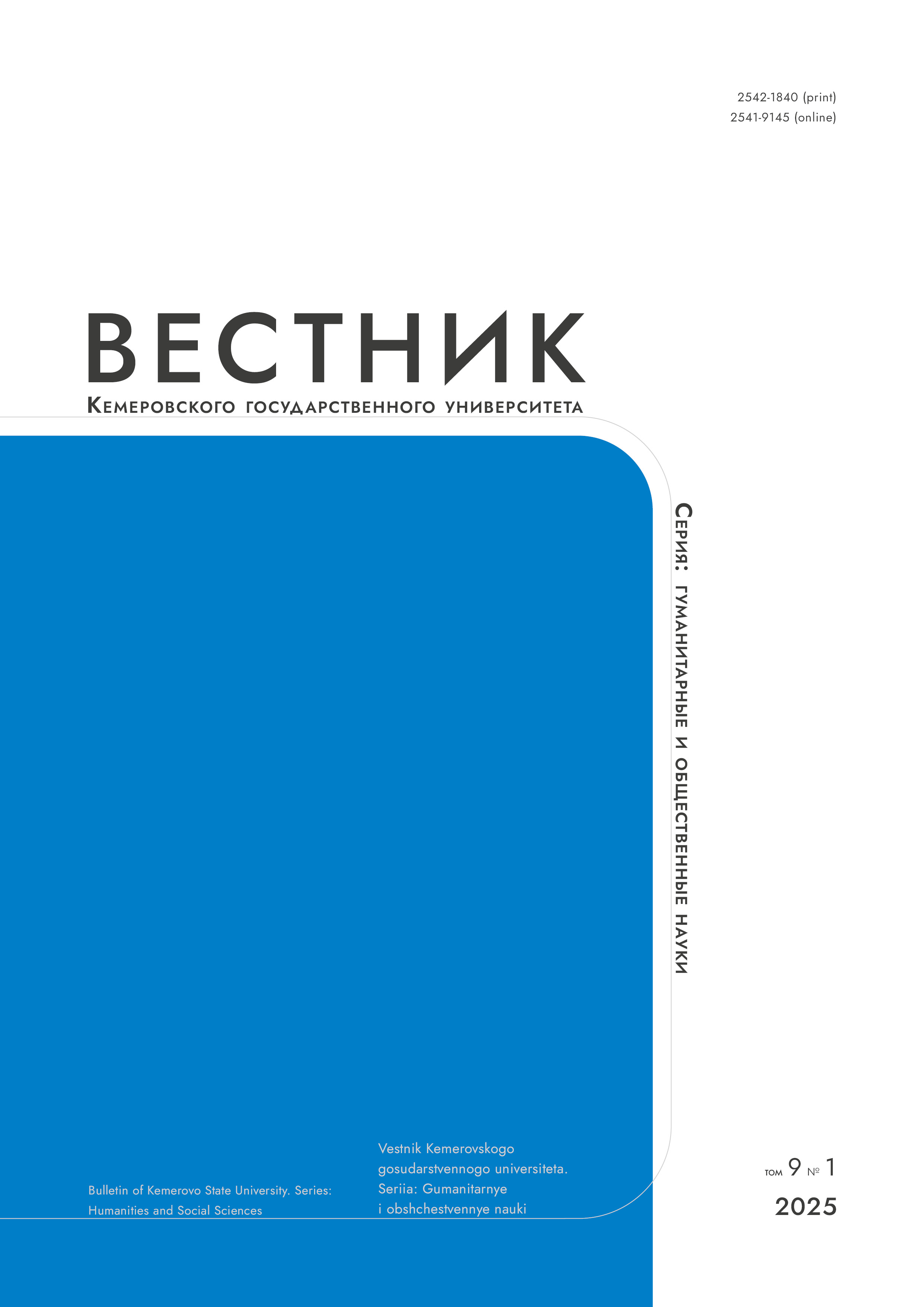from 01.01.2020 until now
Plekhanov Russian University of Economics (Kemerovo branch)
from 01.01.2019 to 01.01.2020
Kuzbass Institute of the Federal Penitentiary Service of the Russian Federation
from 01.01.2009 to 01.01.2019
Kemerovo, Russian Federation
UDC 13
The article features the problem of consolidating and understanding the digital sovereignty of the State and the individual. The author addresses the challenge of establishing a correlation between the idea of digital sovereignty and the global socio-political change. The paper focuses on the effect of modern trends of social development, i.e. accelerated social informatization and globalization, on the development of doctrine of digital sovereignty and its legal design. The author believes that the idea of digital sovereignty is a reaction to the transformation of the global social order, which resulted in new doctrinal provisions and legal norms. They give citizens the right to determine the process of formation, storage, and management of digital data, as well as to ensure their inviolability. The legal formalization of digital sovereignty can indicate either the protection of statehood and personality or, on the contrary, their absorption by structures of the global order. As a result, such categories as "sovereignty, "statehood, or "personality" may eventually lose their actual meaning and real content. The conceptualization of the phenomenon of neurosovereignty and its implementation programs might be the future of the theory and practice of sovereignty.
informatization, digitalization, state, artificial intelligence, electronic platform, NeuroNet, personality, neurosovereignty
1. Sivash E. M. Questions of sovereignty are in the acts of Great French Revolution and the Holy Alliance. Problemy zakonnosti, 2011, (115): 228-237. (In Russ.)
2. Bredikhin A. L., Protsenko E. D. Principles and properties of State sovereignty. Akademicheskij yuridicheskij zhurnal, 2016, (3): 4-12. (In Russ.)
3. Reut O. Ch. Adjectives of sovereignty. Sovereignty as an adjective. Polis. Political Studies, 2007, (3): 115-124. (In Russ.) DOI:https://doi.org/10.17976/jpps/2007.03.09
4. Tokarev V. A. To the issue of the concept of the "sovereignty holder" (comparative legal analysis). Izvestiia vuzov. Pravovedenie, 2016, (3): 130-139. (In Russ.)
5. Zorina E. G. Informational sovereignty of contemporary state and the main instruments of its ensuring. Izv. Saratov. Univ. (N. S.), Ser. Sociology. Politology, 2017, 17(3): 345-348. (In Russ.) DOI:https://doi.org/10.18500/1818-9601-2017-17-3-345-348
6. Matuzov N. I. To the question of the sovereignty of the individual. Pravovedenie, 1994, (4): 3-14. (In Russ.)
7. Chernyak L. Yu. On the concept information sovereignty: theoretical and comparative and legal aspects. Siberian Law Herald, 2012, (3): 117-122. (In Russ.)
8. Mass media and Internet: legal regulation problems, comp. Monakhov V. N. Moscow: EKOPRINT, 2003, 320. (In Russ.)
9. Terenteva L. V. Concept of sovereignty in the conditions of global and information communication processes. Pravo. Zhurnal Vysshey shkoly ekonomiki, 2017, (1): 187-200. (In Russ.) DOI:https://doi.org/10.17323/2072-8166.2017.1.187.200
10. Simonov V. A. Sovereignty: the problems of subjects. Herald of Omsk University. Series "Law", 2016, (1): 54-68. (In Russ.)
11. Bredihin A. L., Protsenko E. D. Sovereignty as a legal category. Bulletin of the Moscow University of the Ministry of Internal Affairs of Russia, 2011, (9): 142-151. (In Russ.)
12. Boltanova E. S., Imekova M. P. Genetic information in the system of objects of civil rights. Lex russica, 2019, (6): 110-121. (In Russ.) DOI:https://doi.org/10.17803/1729-5920.2019.151.6.110-121
13. Ruzanova V. D. Legislation in the field of personal data as an institution of information legislation. Iuridicheskii vestnik Samarskogo universiteta, 2019, 5(2): 15-22. (In Russ.) DOI:https://doi.org/10.18287/2542-047X-2019-5-2-15-22
14. Aliyeva G. V. Possibilities and limits of the safeguarding of intangible cultural heritage with the international system of human rights protection. Legal Concept, 2018, 17(3): 133-145. (In Russ.) DOI:https://doi.org/10.15688/lc.jvolsu.2018.3.19
15. Bochkov S. I. Problems of legal regulation of innovation activity. Moscow: Mediatsentr, 2015, 46. (In Russ.)
16. Gavrilov E. O. Religiousness metamorphoses in modern Russia in the context of global social changes. Tomsk State University Journal, 2011, (352): 42-49. (In Russ.)
17. Boberach M., Neuburger R. Zukunftspfade Digitales Deutschland 2020. HMD, 2014, 51: 762-772. DOI:https://doi.org/10.1365/s40702-014-0087-z
18. Ronellenfitsch M. Protection of personal data in Germany and Europe. Collection of articles on German law, 2015, iss. 1, 48-54. (In Russ.)
19. Efremov A. A. Formation of the concept of information sovereignty of the state. Pravo. Zhurnal Vysshey shkoly ekonomiki, 2017, (1): 201-215. (In Russ.) DOI:https://doi.org/10.17323/2072-8166.2017.1.201.215
20. Konobeevskaya I. M. Digital rights as a new object of civil rights. Izv. Saratov Univ. (N. S.), Ser. Economics. Management. Law, 2019, 19(3): 330-334. (In Russ.) DOI:https://doi.org/10.18500/1994-2540-2019-19-3-330-334
21. Kefeli I. F., Malmberg S. A. State information capacity as information sovereignty basis. Administrative consulting, 2019, (1): 29-39. (In Russ.) DOI:https://doi.org/10.22394/1726-1139-2019-1-29-39
22. Zhukova O. I., Zhukov V. D. On some aspects of moral relations in the age of the information society. Communication strategies of the information society: Proc. XI Intern. Sci.-Theor. Conf., St. Petersburg, October 25-26, 2019. St. Petersburg, 2019, 75-76. (In Russ.)


















